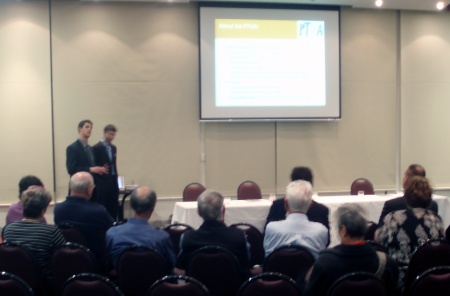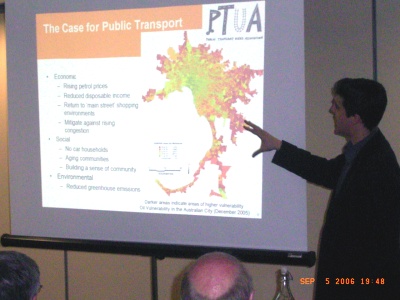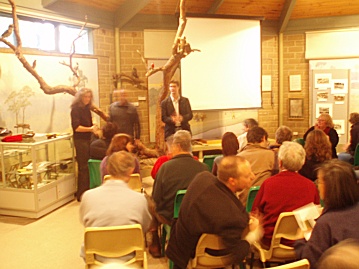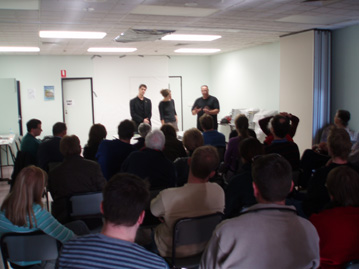On the 27th of June I attended the Peak Oil, Petrol Prices and Climate Change Conference convened by the Victorian Council of Social Services, Environment Victoria and in partnership with the Victorian Government.
Peak Oil is the situation that occurs when the supply of oil is unable to meet demand. It was first hypothesised by Marion King Hubbert who successfully predicted the peaking of US oil supplies in the 1970s.
This conference provided a wealth of information on the repercussions of rising petrol prices and therefore the implications of peak oil on Melbourne and Victoria more broadly. This has a number of consequences for Maroondah since rising petrol prices can create increasing financial strain on household budgets.
In fact one of the speakers at the conference, Dr. Jago Dodson, has investigated the vulnerability of Australia’s cities in regard to rising petrol prices. The report found that outer eastern Melbourne, including Maroondah is definitely susceptible to the resulting increased financial strain, due mainly to the under provision of public transport services.
The conference on peak oil reinforced the need for strong advocacy in regard to public transport. It is therefore encouraging that Maroondah has recently appointed a full-time sustainable transport officer to strengthen our advocacy for public transport improvements.
There were a number of sustainability related events over the course of the past month, including the Croydon Conservation Society Film night on the 28th of June. This film night included screenings of Al Gore’s An Inconvenient Truth and the End of Suburbia, a film that further explores the concept of peak oil.
An Inconvenient Truth which features former US Vice-President Al Gore, explores the growing evidence surrounding climate change and the growing need for worldwide consensus and action. The film draws an interesting comparison between the controversy surrounding climate change and the debate that surrounded CFCs approximately two decades ago.
At the time there was much controversy surrounding the environmentally harmful effects of CFCs, however a worldwide treaty banning their production was signed in 1987. As a result of this definitive action the ozone hole over the Antarctic improved, demonstrating the merit of effective worldwide action. It would appear that similar action is required in regard to climate change. While there is still much debate surrounding the magnitude of climate change, effective action is required to mitigate its increasingly dire effects.



